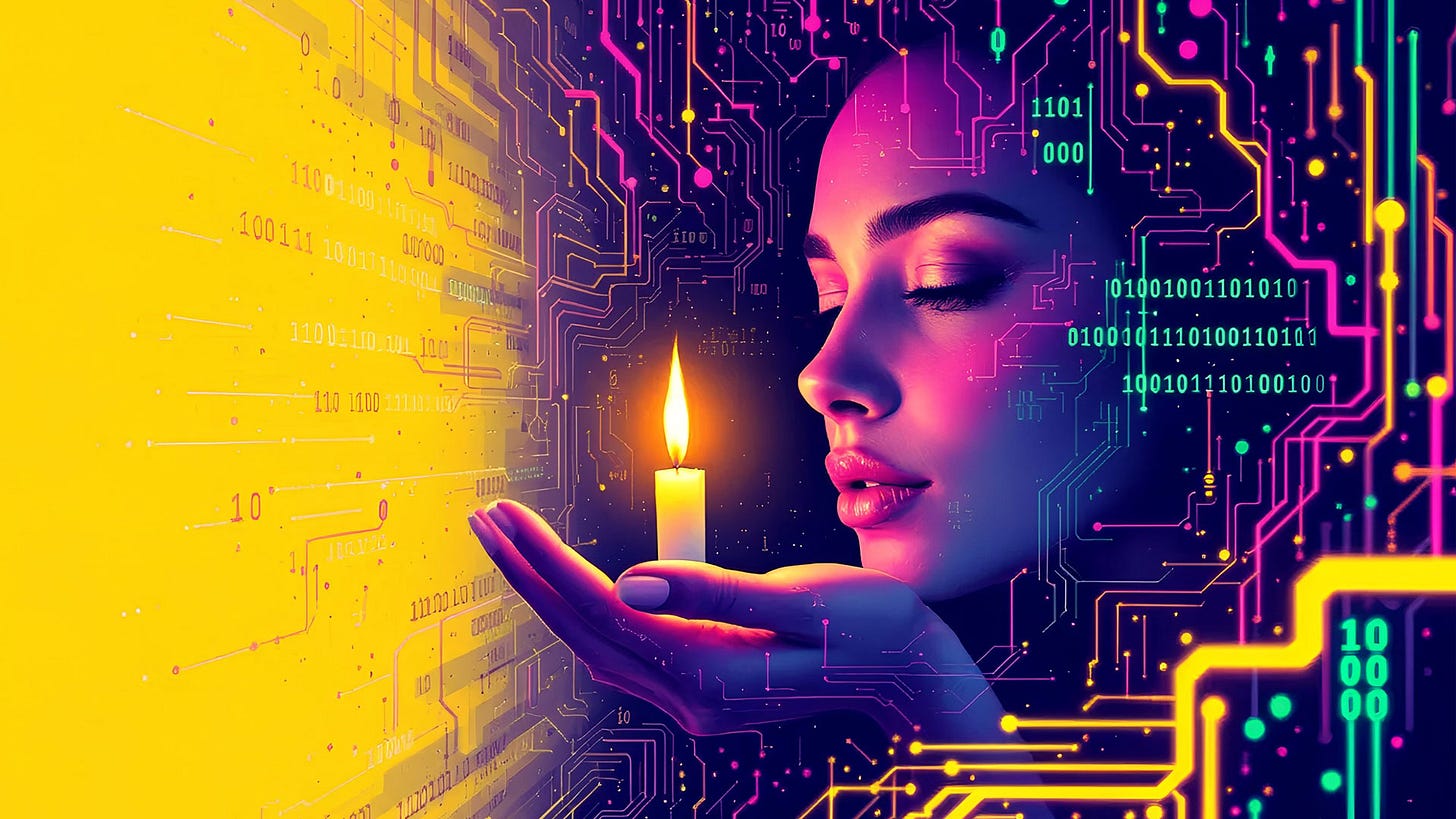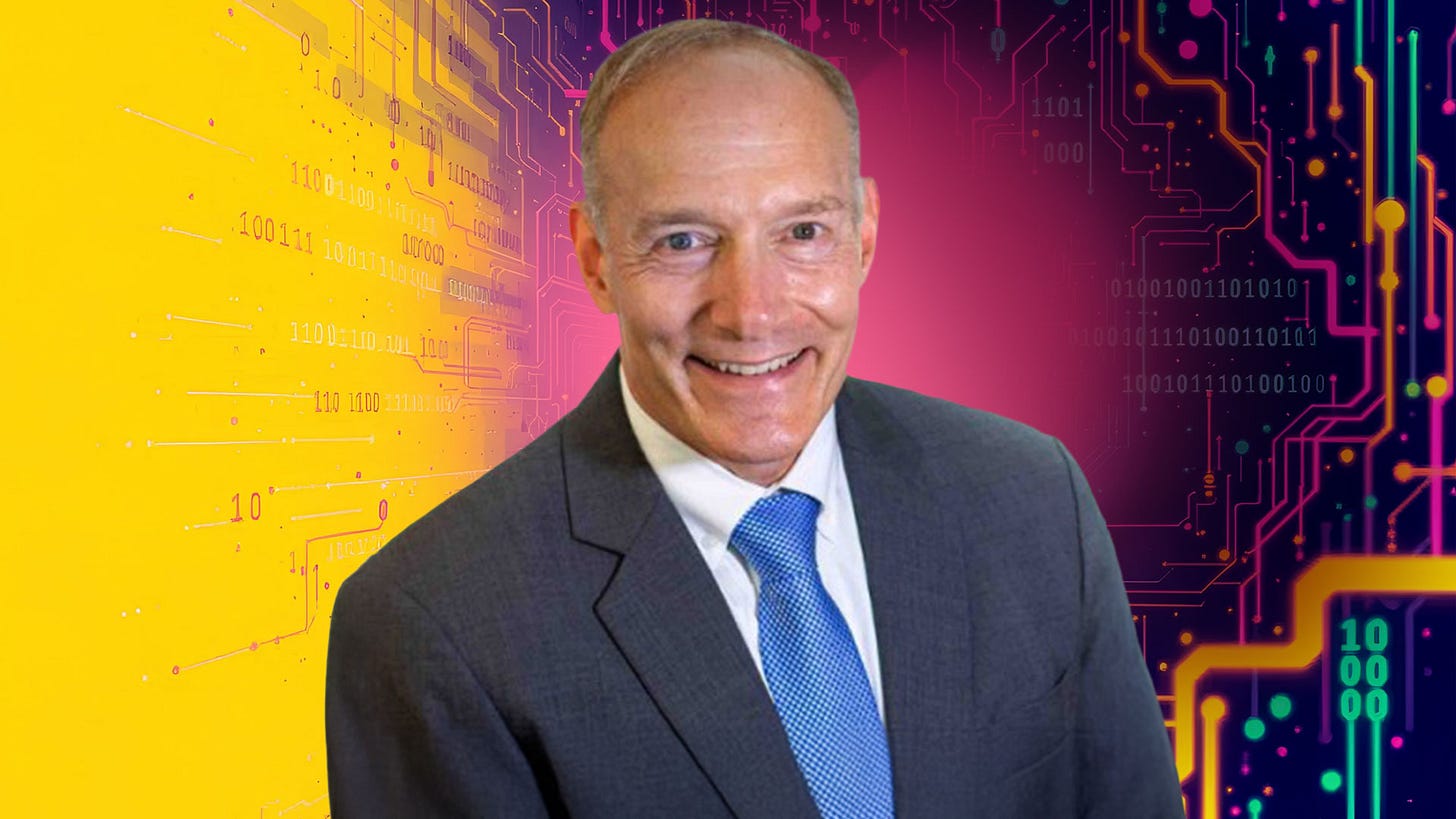The AI-Human Paradox
Why the more powerful our tools become, the more valuable our fundamentals—and our humanity—truly are.
Every major technological leap threatens to erase a skill we once considered essential. The calculator made mental math optional. Spell check made us lazy with spelling. GPS eroded our sense of direction. AI raises the stakes: instead of trimming around the edges, it aims directly at the fundamentals—writing, reasoning, decision-making. If we aren’t careful, it could hollow out the very muscles that make us capable of using it wisely.
That’s the paradox of this moment. AI rewards those with deep foundations, because they know when to trust, when to question, and how to push it further. But it punishes those without, because they accept blindly. A seasoned developer uses AI to squash bugs faster. A novice developer uses it to ship code they don’t understand. The same is true for students, marketers, even leaders. The tool magnifies our strengths—but also exposes our ignorance.
At the same time, AI makes abundance cheap. Words, images, code, even music—suddenly anyone can generate more, faster, with less effort. But abundance isn’t value. If anything, it flips the equation. When everything can be produced instantly, the scarce resource isn’t output—it’s discernment. It’s judgment. It’s trust. In a world where anyone can publish, it matters more than ever who you choose to listen to.
This is where the human premium reasserts itself. Craft, creativity, conversation—the things that can’t be automated—become the differentiators. The restaurant where the server remembers your name. The brand that knows when not to send an automated reply. The leader who can connect dots that don’t show up in a dataset. AI can flood the zone with noise, but it can’t replace the meaning we create when we show up as humans.
So the challenge isn’t whether AI will take our jobs. It’s whether we’ll let it take our depth. Whether we’ll keep investing in fundamentals—writing, thinking, problem-solving—so that we have the authority to use these tools well. And whether we’ll protect the spaces where human connection isn’t just tolerated, but treasured.
That’s the paradox at the heart of this week’s conversation with Eggs! The Podcast guest and entrepreneur Bruce D. Randall.
From Cloud Discipline to the AI–Human Paradox
Bruce D. Randall is no armchair futurist. A seasoned sales executive and former CEO/COO, he’s built and led companies through waves of technological change. Today, he runs a consultancy that helps businesses save millions by optimizing AWS and Microsoft cloud spend—a space where abstraction meets hard-dollar reality. That mix of executive perspective and technical discipline makes him unusually clear-eyed about what AI is and isn’t.
At the same time, Bruce is the author of the forthcoming book The AI-Human Paradox, which translates the math-heavy, jargon-filled world of neural networks and quantum computing into plain language. His work bridges two gaps: between hype and practice, and between software’s mechanical logic and the human qualities that give it purpose. In our conversation, he shares why AI should be seen as an enabler rather than a replacement, why fundamentals like problem-solving and judgment matter more than ever, and how technologies like Neuralink and quantum computing force us to ask what it really means to be human.
AI as Enabler, Not Replacement
Bruce’s perspective cuts through the noise. He doesn’t see AI as a looming replacement or an unstoppable force—it’s software, and like every piece of software before it, its impact depends on how we use it. In our conversation, he returns again and again to a simple idea: AI is an enabler. It can accelerate those with skill and judgment, but it exposes those without. Here are a few highlights from our discussion.
“AI is an enabler. It helps you do things better and faster. It doesn’t replace what you have to do.”
Actionable insight: Treat AI like a calculator. The value comes from the human who knows what to ask and how to apply the answer.
“A large language model looks inside a fixed database it was trained on. Search engines look out to the open web. Hybrids are coming, but they’re not proven yet.”
Actionable insight: Understand the limits of your tools. Use AI for synthesis; use search for discovery. Don’t confuse the two.
“With quantum computing, AI can look at all sides of the data and return probabilities across every outcome.”
Actionable insight: Keep an eye on the next wave. Quantum + AI could compress decades of medical research into months—leaders should plan for sudden leaps, not gradual curves.
“When you put a chip in somebody, you’re merging intelligence with sentience. That 20-year horizon for AI collapses into today.”
Actionable insight: Human-computer integration isn’t science fiction. Neuralink shows how augmentation can restore function—and forces leaders to weigh ethics alongside opportunity.
“We need the human-to-human relationship. A computer or a robot just can’t give you that connection.”
Actionable insight: Double down on the human premium. In industries where trust and empathy drive value, people—not algorithms—are your differentiator.
“Trust and verify. If it’s important, verify the facts—AI isn’t always right.”
Actionable insight: Build verification loops into every AI-assisted workflow. Confidence doesn’t equal correctness.
Protecting the Human Element
AI isn’t destiny—it’s direction. The technology will continue to evolve, from large language models to quantum breakthroughs to Neuralink’s human-machine interfaces. But the real test isn’t whether the tools get smarter. It’s whether we stay sharp enough, curious enough, and connected enough to use them wisely.
Bruce reminds us that AI, at its best, is leverage. It amplifies skill, accelerates progress, and opens doors we couldn’t push open alone. But what makes that leverage valuable isn’t the code—it’s the human hand on the lever. Fundamentals matter. Connection matters. In a world where output is cheap, meaning becomes priceless. The future belongs not to those who automate everything, but to those who choose carefully what not to automate..
Thanks for reading,
—Ryan
Ready for more?
Catch Bruce D. Randall’s interview in its entirety on Eggs! The Podcast.
Don’t miss a show! Subscribe on Spotify, Apple Podcasts, or really anywhere great podcasts are found.
Path Picks
Cool stuff to help you forge your path to greatness.
Note: The Path Weekly is reader-supported. As such, I may be using affiliate links below. If you want to support the newsletter at no additional cost to you, please consider using the links below. If you’d rather not, most items below are widely available anywhere you want to shop. Thanks! –R
Reading list
If you're looking to go deeper on the themes from this week's newsletter, here are a few books that pair well with the conversation and offer a broader perspective on learning, systems, and the future of work:
Life Force by Tony Robbins (with Peter Diamandis & Robert Hariri)
Referenced in the episode when Ryan talked about exploring Parkinson’s treatments for his father. A sprawling but practical guide to advances in medical science, longevity, and health optimization.The Alignment Problem by Brian Christian
A clear, accessible dive into the ethics and risks of machine learning—why AI doesn’t always do what we intend, and what that means for the humans relying on it.Team Human by Douglas Rushkoff
A manifesto for keeping human values at the center of our increasingly automated, digital world. Resonates with Bruce’s call to protect connection as a differentiator.The Pivot Podcast (Kara Swisher & Scott Galloway)
For ongoing, unfiltered discussion of tech, culture, and business—often touching on AI and its implications.
More to explore
Bruce D Randall’s Links:
https://www.linkedin.com/in/brucedrandallusa/
https://podfol.io/profile/bruce-randall
Work with me
Ryan Roghaar - Fractional CMO/Creative Director/Art Director: https://rogha.ar/portfolio
R2 - Creative Services for Agencies and SMBs: https://www.r2mg.com
***NEW*** R2 Health - Healthcare branding & strategy that connects, inspires trust, and drives results. Powered by R2. https://www.r2mghealth.com
Eggs! The Podcast: https://www.eggscast.com
Would you like a personal introduction to any of the incredible leaders featured in The Path Weekly to explore business or other collaborative opportunities?
Contact me here to learn more about my B2B matchmaking service.
Get featured
Do you want to be featured in a future edition of The Path Weekly?
Contact me to learn more.





The way I look at it, I subtrack the technology's inherent power, and focus om the human element that it directs. I see AI as a tool, not a solution in itself. Its only as good as it can be. Hinging entirely on our ability to ask the right questions, provide the proper context, and know when to challenge its output.
For me, the real skill in the age of AI isn't simply using the tool, but using it as the tool it is to probe deeper, double check answers, and not get carried away with AI’s “brilliance” vs. the human intelligence behind the prompts given.
I enjoyed reading this perspective and take from it the future possibly belongs to those who maintain their curiosity and critical thinking, ensuring that meaning and purpose aren't lost in a sea of automated output.